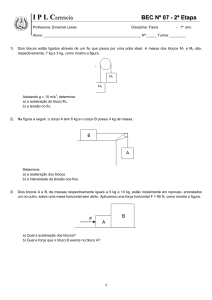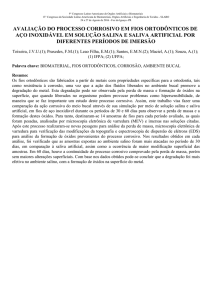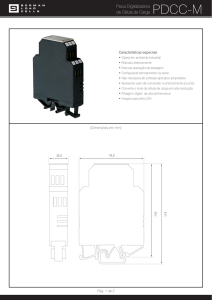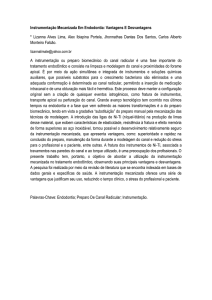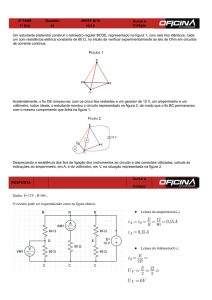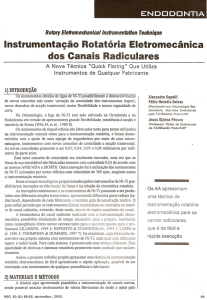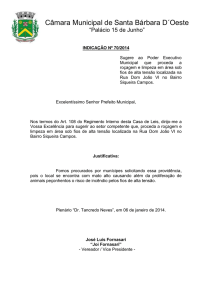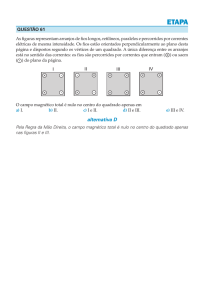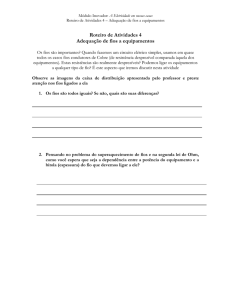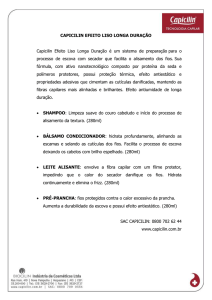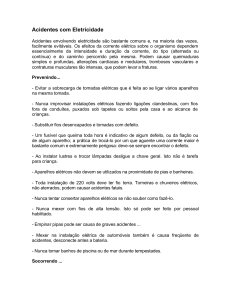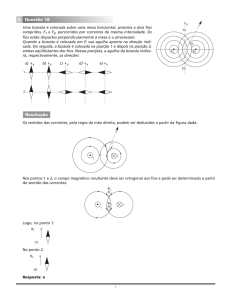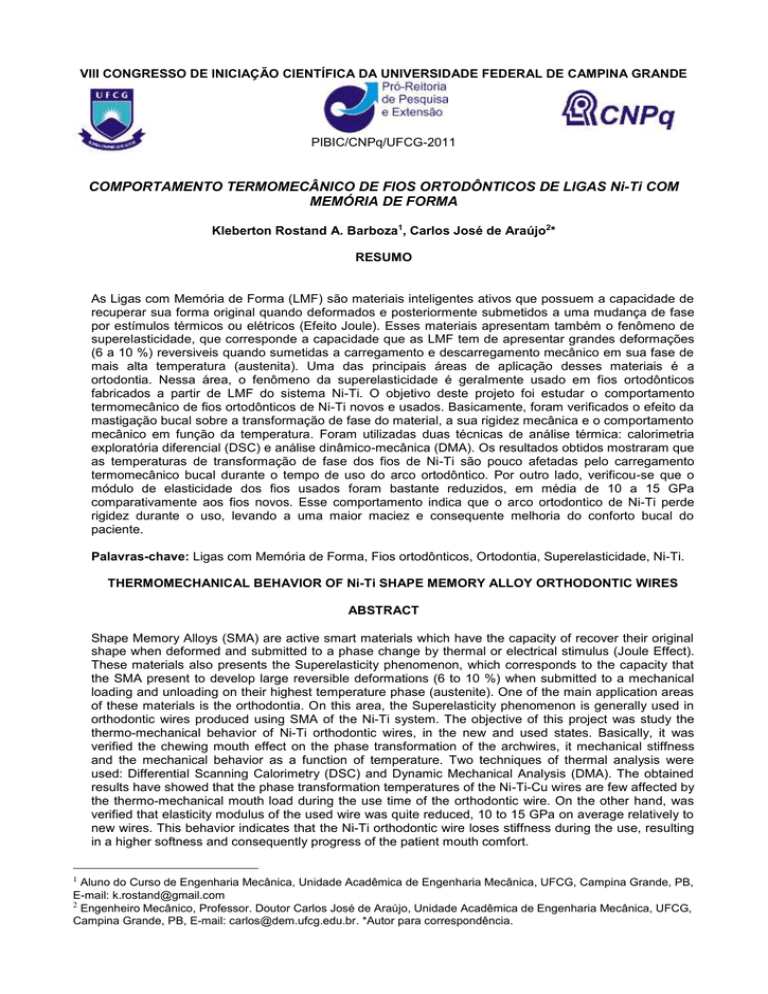
VIII CONGRESSO DE INICIAÇÃO CIENTÍFICA DA UNIVERSIDADE FEDERAL DE CAMPINA GRANDE
PIBIC/CNPq/UFCG-2011
COMPORTAMENTO TERMOMECÂNICO DE FIOS ORTODÔNTICOS DE LIGAS Ni-Ti COM
MEMÓRIA DE FORMA
Kleberton Rostand A. Barboza1, Carlos José de Araújo2*
RESUMO
As Ligas com Memória de Forma (LMF) são materiais inteligentes ativos que possuem a capacidade de
recuperar sua forma original quando deformados e posteriormente submetidos a uma mudança de fase
por estímulos térmicos ou elétricos (Efeito Joule). Esses materiais apresentam também o fenômeno de
superelasticidade, que corresponde a capacidade que as LMF tem de apresentar grandes deformações
(6 a 10 %) reversiveis quando sumetidas a carregamento e descarregamento mecânico em sua fase de
mais alta temperatura (austenita). Uma das principais áreas de aplicação desses materiais é a
ortodontia. Nessa área, o fenômeno da superelasticidade é geralmente usado em fios ortodônticos
fabricados a partir de LMF do sistema Ni-Ti. O objetivo deste projeto foi estudar o comportamento
termomecânico de fios ortodônticos de Ni-Ti novos e usados. Basicamente, foram verificados o efeito da
mastigação bucal sobre a transformação de fase do material, a sua rigidez mecânica e o comportamento
mecânico em função da temperatura. Foram utilizadas duas técnicas de análise térmica: calorimetria
exploratória diferencial (DSC) e análise dinâmico-mecânica (DMA). Os resultados obtidos mostraram que
as temperaturas de transformação de fase dos fios de Ni-Ti são pouco afetadas pelo carregamento
termomecânico bucal durante o tempo de uso do arco ortodôntico. Por outro lado, verificou-se que o
módulo de elasticidade dos fios usados foram bastante reduzidos, em média de 10 a 15 GPa
comparativamente aos fios novos. Esse comportamento indica que o arco ortodontico de Ni-Ti perde
rigidez durante o uso, levando a uma maior maciez e consequente melhoria do conforto bucal do
paciente.
Palavras-chave: Ligas com Memória de Forma, Fios ortodônticos, Ortodontia, Superelasticidade, Ni-Ti.
THERMOMECHANICAL BEHAVIOR OF Ni-Ti SHAPE MEMORY ALLOY ORTHODONTIC WIRES
ABSTRACT
Shape Memory Alloys (SMA) are active smart materials which have the capacity of recover their original
shape when deformed and submitted to a phase change by thermal or electrical stimulus (Joule Effect).
These materials also presents the Superelasticity phenomenon, which corresponds to the capacity that
the SMA present to develop large reversible deformations (6 to 10 %) when submitted to a mechanical
loading and unloading on their highest temperature phase (austenite). One of the main application areas
of these materials is the orthodontia. On this area, the Superelasticity phenomenon is generally used in
orthodontic wires produced using SMA of the Ni-Ti system. The objective of this project was study the
thermo-mechanical behavior of Ni-Ti orthodontic wires, in the new and used states. Basically, it was
verified the chewing mouth effect on the phase transformation of the archwires, it mechanical stiffness
and the mechanical behavior as a function of temperature. Two techniques of thermal analysis were
used: Differential Scanning Calorimetry (DSC) and Dynamic Mechanical Analysis (DMA). The obtained
results have showed that the phase transformation temperatures of the Ni-Ti-Cu wires are few affected by
the thermo-mechanical mouth load during the use time of the orthodontic wire. On the other hand, was
verified that elasticity modulus of the used wire was quite reduced, 10 to 15 GPa on average relatively to
new wires. This behavior indicates that the Ni-Ti orthodontic wire loses stiffness during the use, resulting
in a higher softness and consequently progress of the patient mouth comfort.
1
Aluno do Curso de Engenharia Mecânica, Unidade Acadêmica de Engenharia Mecânica, UFCG, Campina Grande, PB,
E-mail: [email protected]
2
Engenheiro Mecânico, Professor. Doutor Carlos José de Araújo, Unidade Acadêmica de Engenharia Mecânica, UFCG,
Campina Grande, PB, E-mail: [email protected]. *Autor para correspondência.
Keywords: Shape Memory Alloys, Orthodontic Wires, Orthodontia, Superelasticity, Ni-Ti.

